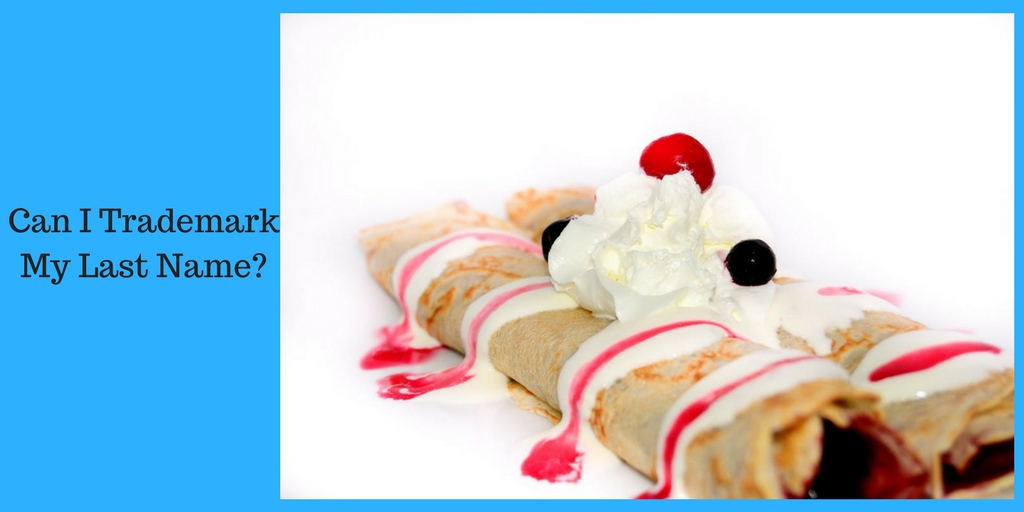Trademark Protection and Personal Names
How much trademark protection do you have in your own last name? Last week, The Trademark Trial and Appeal Board affirmed their decision to refuse to register the proposed trademark “CREPES BONAPARTE” for “food truck services; mobile catering services.” The Board decided that the proposed mark is likely to cause confusion with the already registered “CAFÉ BONAPARTE” trademark for “restaurant services.” The applicant for the CREPES BONAPARTE trademark had argued that because the term BONAPARTE is primarily an individual’s last name, or surname, the term should be entitled to fewer, more limited protections than other trademarks, pursuant to Trademark Act.
The Trademark Act has identified five factors to be considered when making the determination of whether or not a mark is “primarily merely a surname”:
- (1) whether the surname is rare
- (2) whether the term is the surname of anyone connected with the applicant;
- (3) whether the term has any recognized meaning other than as a surname;
- (4) whether it has the “look and feel” of a surname; and
- (5) whether the stylization of lettering is distinctive enough to create a separate commercial impression
If it is determined that these criteria are met and the mark is primarily merely a surname, the mark will be given a lesser level of protection to prevent other individuals with the same name from being able to associate their name with their product or service.
In this case, the Trademark Trial and Appeal Board agreed that the term “BONAPARTE” had some significance as a surname, but went on to say that “a term with surname significance may not be primarily merely a surname if that term also identifies a historical place or person,” citing such names as DA VINCI, SOUSA, and ESCHER. The Board determined that the term BONAPARTE is more likely to be associated with the famous historical figure than with its prevalence as a surname, and thus is given broader protection than a “mere surname” would be given.
In deciding that the CAFÉ BONAPARTE mark should not be given lesser protection as a surname, the Board effectively decided that most consumers would associate the term BONAPARTE with the famous historical figure, rather than with the surname of any other average individual, and thus the trademark should be given strong protection for the goods and services that it represents. For these reasons, the Trademark Trial and Appeal Board determined that the CREPES BONAPARTE mark should not be allowed registration in the field of restaurant services, as it is confusingly similar to the existing CAFÉ BONAPARTE mark.
This case sheds light on the rare but significant instance of when a trademark applicant attempts to gain protection for a surname, effectively barring like-named individuals from the benefit of using their own identities to associate with their similar goods or services. The U.S. Patent and Trademark Office must continue to balance the conflicting interests of a) protecting individuals and companies who want their trademark to represent only them as the source of their goods and services, and b) making sure that individuals maintain the right to use their own names to brand their goods and services.





